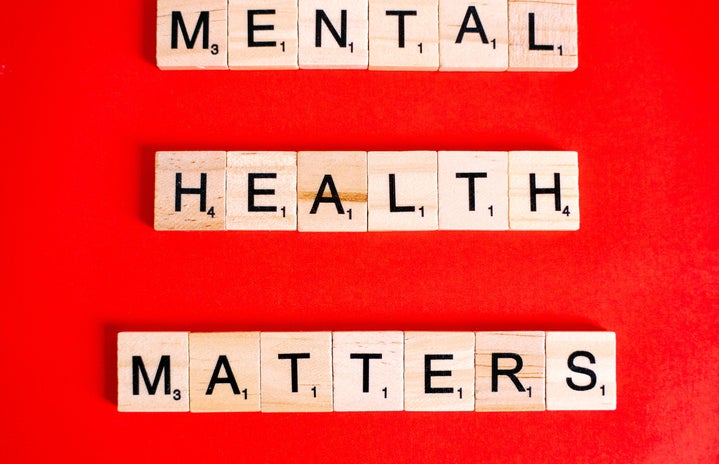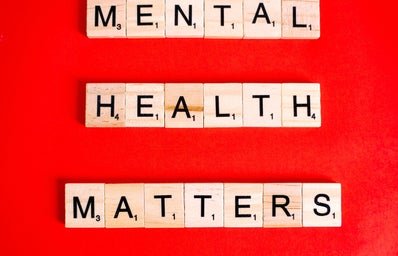In our current society, the vast majority of our generation suffers from some form of mental illness. Most of my peers and I have been either diagnosed, medicated, attend regular therapy sessions or have shown symptoms of depression and/or anxiety, as well as many others. Mental illness is so common in our generation, it’s almost anticipated.
I’m often asked by adults, “why are you kids so depressed?” and truth be told, I have no generic answer. I could talk about the stress of the impending climate crisis falling into our hands, the constant fear of a school shooter pulling out an AR-15 in our place of learning, or how the government doesn’t seem to care about our basic human rights. And while I typically refer to these examples, they fail to summarize everyone’s experience, origin, and battle with mental illness.
The fact of the matter is that there is no possible way to explain or rationalize Gen Z’s high rates of depression, anxiety, OCD, ADHD, etc. Therefore, we cannot and should not generalize about mental illness or lump experiences together because all of us are going through different things.
However, I find that while our generation prides itself on its devotion to destigmatizing and normalizing mental illness, we don’t do a very good job of validating others’ struggles. This is not to say that there aren’t those who are supportive and empathetic– trust me, I’ve come across many people like that. But I also have had interactions with those who tend to think their experiences or hardships are more intense, significant, and pressing than mine or others around them.
You’ve probably encountered these folks as well. They’re the ones who respond to a story in which you express the impact mental illness has had on you by saying, “well at least you’re not suicidal.” While that’s a very credible, heartbreaking, and concerning statement to hear, it seems that its only purpose in that context is to diminish your adversity. A comment like that would and should ordinarily garner sympathy and comfort, but when it follows the recitation of your own agony, it holds a different connotation and a more insensitive tone. You would have no choice but to respond with “touche” and “I’m so sorry to hear that mental illness has taken such a toll on your overall well-being.” And then both of you would walk away feeling worse than you had before; you would wish your struggle was validated, and the person with whom you were speaking would walk away feeling as though their mental health is worse than everyone else’s, causing them to feel alone.
Neither of these outcomes is ideal. If anything, these occurrences merely contribute to a toxic society in which mental illness is categorized into levels of importance, urgency, and potency. Consequently, we’re unknowingly establishing a culture in which there’s a hierarchy of mental illness. Correct me if I’m mistaken, but I don’t feel that this methodology will aid us in the undertaking to legitimize the peril with which mental illness inflicts upon us all. Why is it that we feel the need to one-up each other when it comes to mental illness? It doesn’t appear to be beneficial to any party involved.
Unfortunately, I’ve had my fair share of unpleasant chats regarding mental health. I once told someone about an incident from my childhood by which I was negatively impacted, and the person I was talking with rebutted crassly.
“Yeah, that really sucks,” they shrugged. “But my mother was physically abusive to me so you should consider yourself lucky.”
First of all, I’m not going to consider my childhood anguish fortuitous. I can empathize with your traumatic childhood and do my best to listen to and validate what you have to say but nobody’s experience is neither better nor worse than another’s. Mine may not be as extreme as yours but it doesn’t mean that it didn’t affect my mental health just as much or more than what happened to you.
I believe that there is a distinction between the act of belittling and trying to relate to someone’s experience if you’ve had a similar one. For example, over the summer, I had a friend who was dealing with some of the same issues as me. One day, I began swearing under my breath as I realized that I had forgotten to take my medication that morning. He asked me what was wrong, and naturally, I informed him of my situation. He politely requested to hear the various medications I take and I willingly began rattling off the long list of substances I consume.
“I take 30mg of Prozac daily,” I told him. “For depression, anxiety and OCD.”
“I have depression, anxiety, and OCD too,” he said. “My OCD was pretty bad before I was medicated, though.”
He proceeded to ask, “did you find that you would always need things to be symmetrical? Like you would have to even out both sides of something? Or that the volume on your car radio would have to be even numbers?”
“Or multiples of five!” I exclaimed. “Yes, that’s exactly what would happen to me.”
This conversation, rather than the other previously mentioned, is healthier, more affirming, and constructive. It allows both parties to connect on a personal level through shared experience.

Moving forward, I think we must strive to understand that all of our continuous battles with mental health can neither compare to nor contend with that of others. All mental illnesses and experiences– no matter how intense or mild– are valid and deserve the same amount of respect and attention. Instead of trying to compete against each other, let’s work together to find solutions and ways to support one another through our individual journeys with our mental health.



